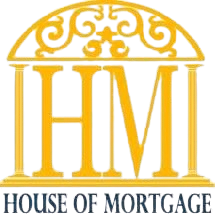About Me

Loan Programs
Which Loan Is Right for Me?
Choosing the right mortgage depends largely on how long you plan to stay in your home. Whether you’re a first-time buyer, a short-term resident, or settling in for the long haul, understanding your timeline helps match you with a loan program that fits your financial goals and lifestyle. From fixed-rate stability to the flexibility of adjustable-rate options, each loan type offers its own set of advantages—and trade-offs.
This guide breaks down the best loan options based on your expected length of stay, along with key pros and cons for each loan type. Whether you're drawn to the predictability of a 30-year fixed mortgage or the lower initial payments of an ARM, the right choice starts with understanding how each program works for your unique situation.
1-3 Years:
Best Program: 3/1 ARM, 1-Year ARM, or 6-Month ARM
3-5 Years:
Best Program: 5/1 ARM
5-7 Years:
Best Program: 7/1 ARM
7-10 Years:
Best Program: 10/1 ARM, 30-Year Fixed, or 15-Year Fixed
10+ Years:
Best Program: 30-Year Fixed or 15-Year Fixed
Fixed Rate Mortgages
Programs: 30-Year Fixed, 15-Year Fixed
Pros:
- Monthly payments are fixed over the life of the loan.
- Interest rate does not change.
- You’re protected if interest rates rise.
- You can refinance if rates drop.
Cons:
- Higher interest rate.
- Higher monthly payments.
- The rate does not drop if interest rates improve.
Adjustable Rate Mortgages (ARMs)
Programs: 10/1 ARM, 7/1 ARM, 3/1 ARM, 1-Year ARM, 6-Month ARM, 1-Month ARM
Pros:
- Lower initial monthly payments.
- Lower payments over a shorter period.
- Rates and payments may go down if market rates improve.
- May qualify for higher loan amounts.
Cons:
- More risk.
- Payments may change over time.
- Potential for higher payments if rates go up.
Balloon Mortgages
Programs: 7-Year, 5-Year
Pros:
- Lower initial monthly payments.
- Lower payments over a shorter period.
- Some balloon mortgages offer the option to convert to a new loan after the initial term.
Cons:
- Risk of higher interest rates after the initial fixed period.
- Risk of foreclosure if you cannot make the balloon payment, refinance, or exercise the conversion option.
First-Time Buyer Programs
Pros:
- Lower down payment.
- Easier to qualify.
- Sometimes you may get lower rates.
Cons:
- May be subject to income and property value limitations.
- Some programs with government subsidies may have a recapture tax if you sell the house too soon.
Stated Income Programs
Pros:
- Don’t need to verify income.
- Faster approval.
Cons:
- Higher interest rates.
- Higher payments.
No Point, No Fee Programs
Pros:
- No closing costs.
- Less money required to close.
Cons:
- Higher rates.
- Higher payments.
Imperfect Credit Programs
Pros:
- Opportunity to re-establish credit by paying the mortgage on time.
- When used for debt consolidation, you may be able to reduce your monthly debt payment.
Cons:
- Higher rates.
- Terms may not be as favorable.
- Harder to get long-term fixed loans.
- Loans may have prepayment penalties.
Home Equity Line of Credit (HELOC)
Pros:
- You only borrow what you need.
- Pay interest only on what you borrow.
- Flexible access to funds.
- Interest may be tax-deductible.
Cons:
- Rates can change, and maximum rates are typically high.
- Payments can change.
- Harder to refinance your first mortgage.
Home Equity Fixed Loan
Pros:
- Fixed payments.
- Interest may be tax-deductible.
Cons:
- Higher interest rates than on first mortgages.
- Harder to refinance your first mortgage.
Contact Me
Start the Conversation
Send a quick message and I’ll get back to you with the answers, clarity, or next steps you’re looking for—your home journey begins here.
